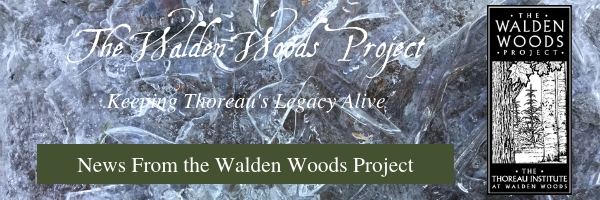
IN THIS ISSUE…
- Shop for holiday gifts at our Shop!
- Thoreau’s Walden: a Journey in Photographs by Scot Miller
- Kenneth B. Morris, Jr., Speaks at the WWP
- Record Number of Group Visits in Walden Woods
- WWP Acquires a Key Parcel in Walden Woods
- The Morelist visits Walden Woods
- Poets on Thoreau
- The Farm Concludes its 11th Season
- About Us
Fall 2018
Friends,
This Giving Tuesday we hope you will consider a tax-deductible donation to The Walden Woods Project. Your contribution will help us continue our important mission of protecting the land, literature, and legacy of Henry David Thoreau. This quarterly newsletter outlines many of the projects that your gift would support. We hope you enjoy the news from our corner of the woods.
Thank you for your generosity,
The Walden Woods Project

SHOP FOR HOLIDAY GIFTS AND SUPPORT THE WALDEN WOODS PROJECT!
We have items for $3 and up. Browse our shop at www.walden.org/shop. Foreign orders will require additional postage.
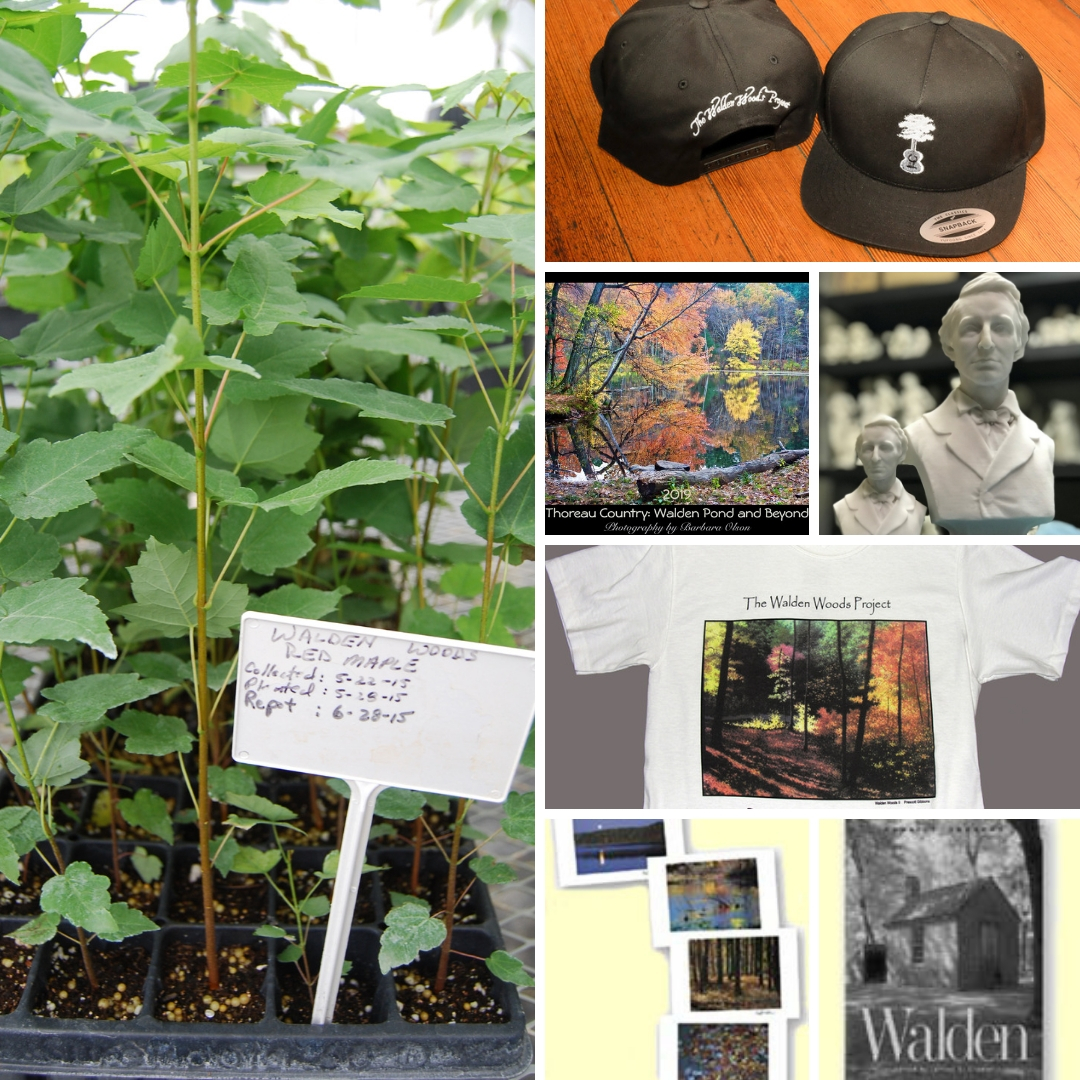
You can buy a Red Maple from Walden Woods! The Walden Woods Project is working with American Heritage Trees to harvest Red Maple tree seeds in Walden Woods that are then sold as nursery stock. Order a small sapling on their website: americanheritagetrees.org/partners/henry-david-thoreau/! A percentage of sales proceeds supports The Walden Woods Project.
THOREAU’S WALDEN: A JOURNEY IN PHOTOGRAPHS BY SCOT MILLER
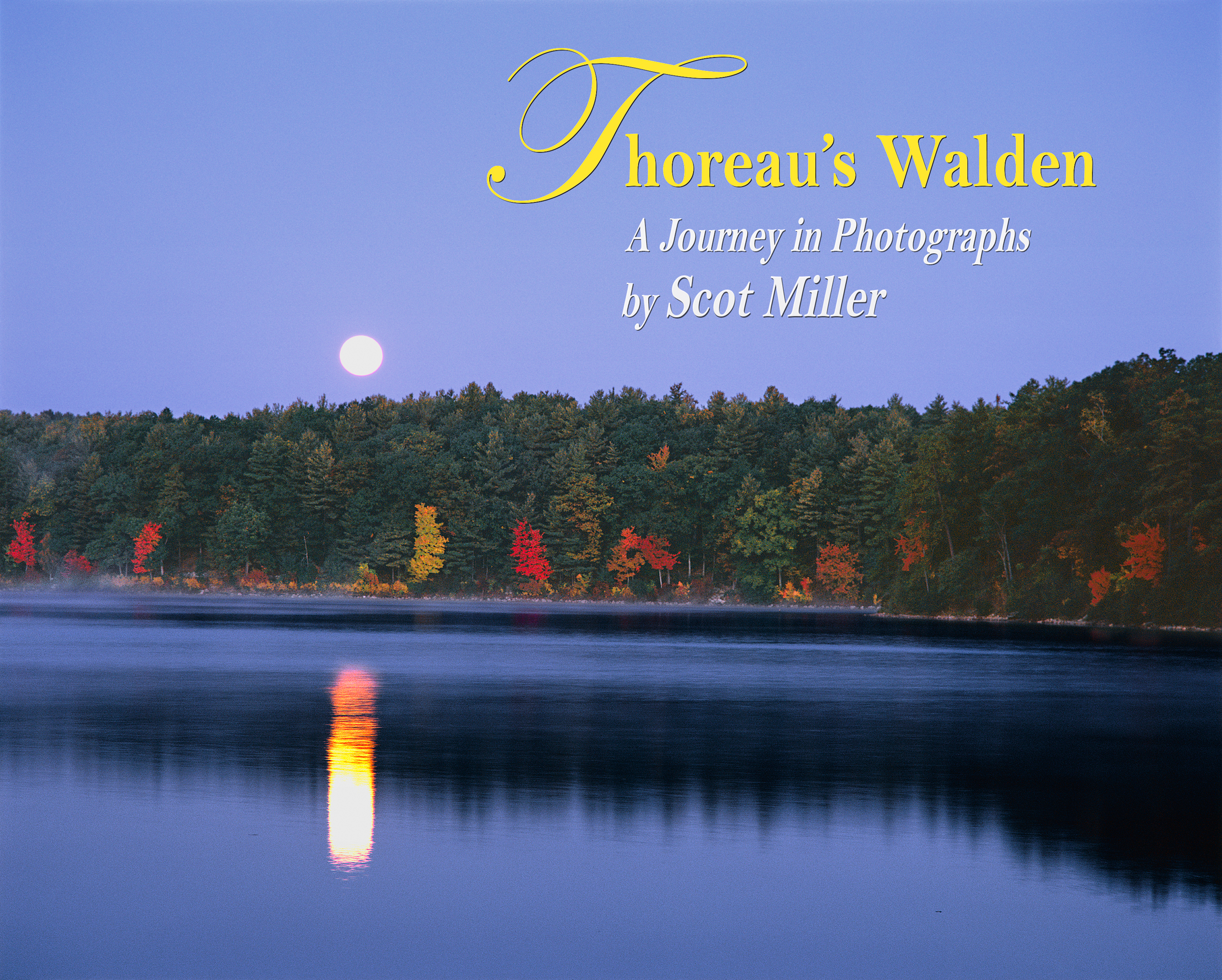
On October 9th, The Walden Woods Project (WWP) hosted its first fundraising event benefiting
“Friends of Walden Pond” (FOWP). The WWP is the official FOWP group as designated by the Commonwealth of Massachusetts. In this capacity, WWP collaborates with the MA Department of Conservation and Recreation on educational programming, interpretation, conservation initiatives and fundraising for Walden Pond State Reservation.
The fundraiser, held at the Walden Pond State Reservation Visitor Center, celebrated the opening of an exhibit of Scot Miller’s stunning photographic images of Walden Pond and Walden Woods. Scot was on hand to share his experiences in photographing Walden through the years. His award-winning photography has formed the basis of numerous books. He is a frequent contributor to the “Moment in Nature” videos, broadcast nationally on CBS Sunday Morning.
The exhibition features photographs from Miller’s Walden –150th Anniversary Illustrated Edition of the American Classic, first published in 2004 as a special anniversary edition and re-released in 2015 by Houghton MifflinHarcourt. The book is beautifully illustrated with Scot’s spectacular color photographs that capture Walden as vividly in images as Thoreau captured it in words.
Copies of Scot Miller’s prints may be purchased at www.suntomoon.com and his books and cards can be purchased in our shop.
The Walden Woods Project acknowledges with deep gratitude the following businesses and individuals for their generous sponsorship of the Friends of Walden Pond fundraiser:
Adelita Restaurant/West Concord
Francine Benes and Gail Tsimprea
Gunnel Clarke and John DeVillars
Concord Teacakes/West Concord
Jim Cunningham
Terrell Lamb and Christopher Janney
Mary Helen Lorenz and Ken Bassett
Sara Mattes and Jerry Ritz
Middlesex Savings Bank
Marilyn and Scot Miller
Betty Mobbs and Tom Jones
Shelley Morss
Nashoba Brook Bakery/West Concord
Cokie and Lee Perry
Allison and George Tobia
Anna West Winter and Neil Rasmussen
KENNETH B. MORRIS, Jr., SPEAKS AT THE WALDEN WOODS PROJECT
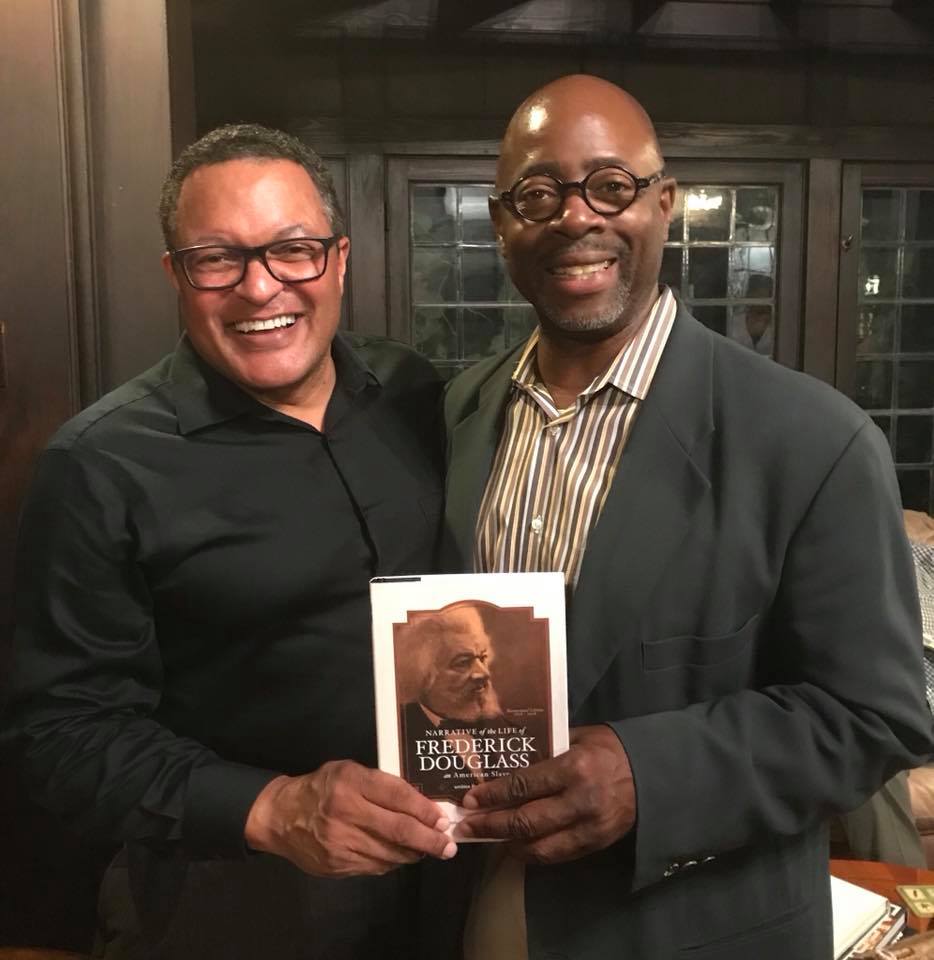
Kenneth B. Morris, Jr. and Jeffrey Thomas
On Monday, September 17th, Kenneth B. Morris, Jr. spoke to a full house at The Walden Woods Project about “abolition from the days of Thoreau and Douglass to the present.” Morris is Co-Founder and President of Frederick Douglass Family Initiatives (FDFI), and is great-great-great grandson to Frederick Douglass and great-great grandson to Booker T. Washington. The event was co-sponsored by The Robbins House and raised money to donate 72 copies of FDFI’s special bicentennial edition of Narrative of the Life of Frederick Douglass: An American Slave to a local school. You can watch a video of talk here.
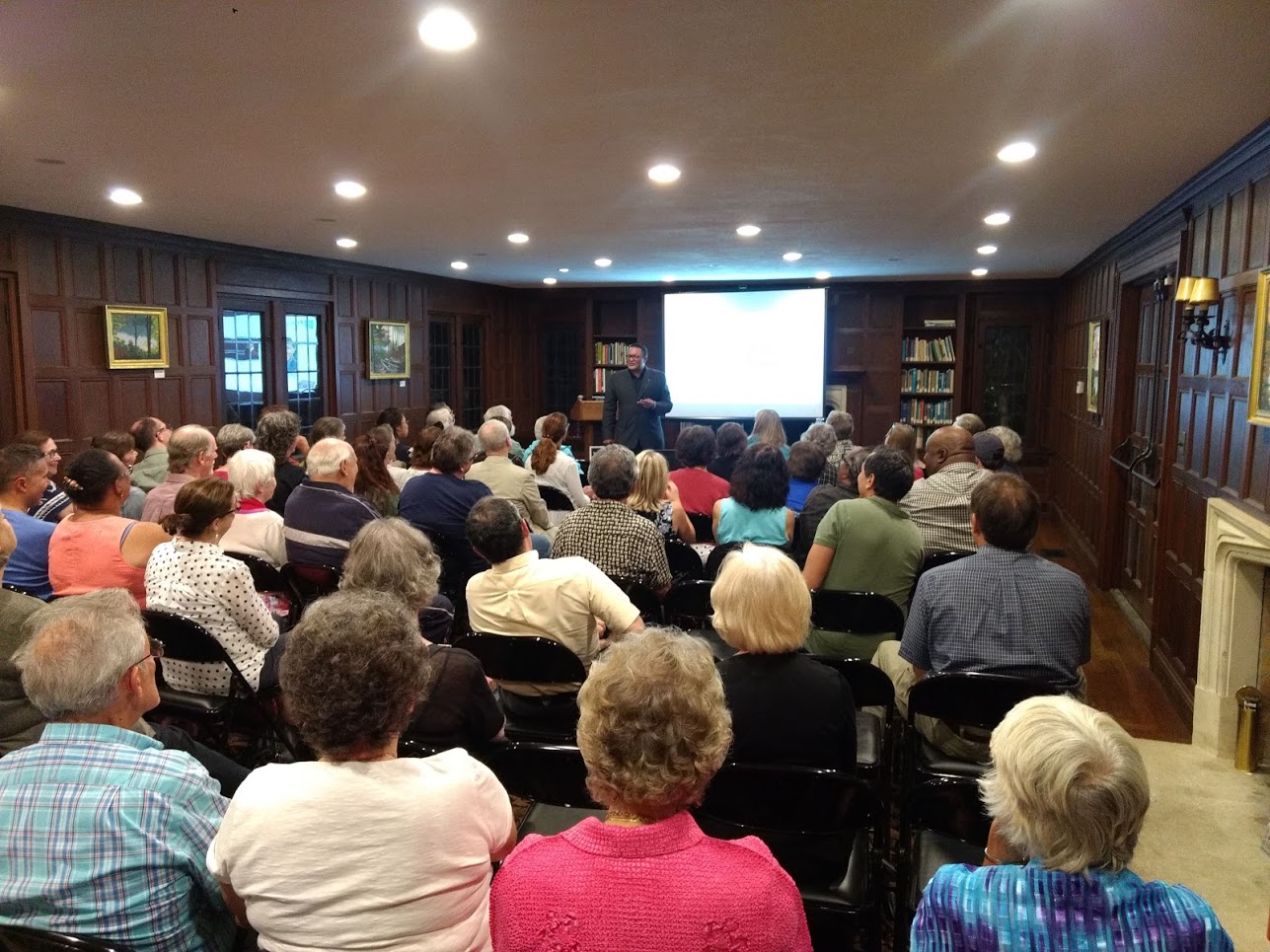
RECORD NUMBER OF GROUP VISITS IN WALDEN WOODS
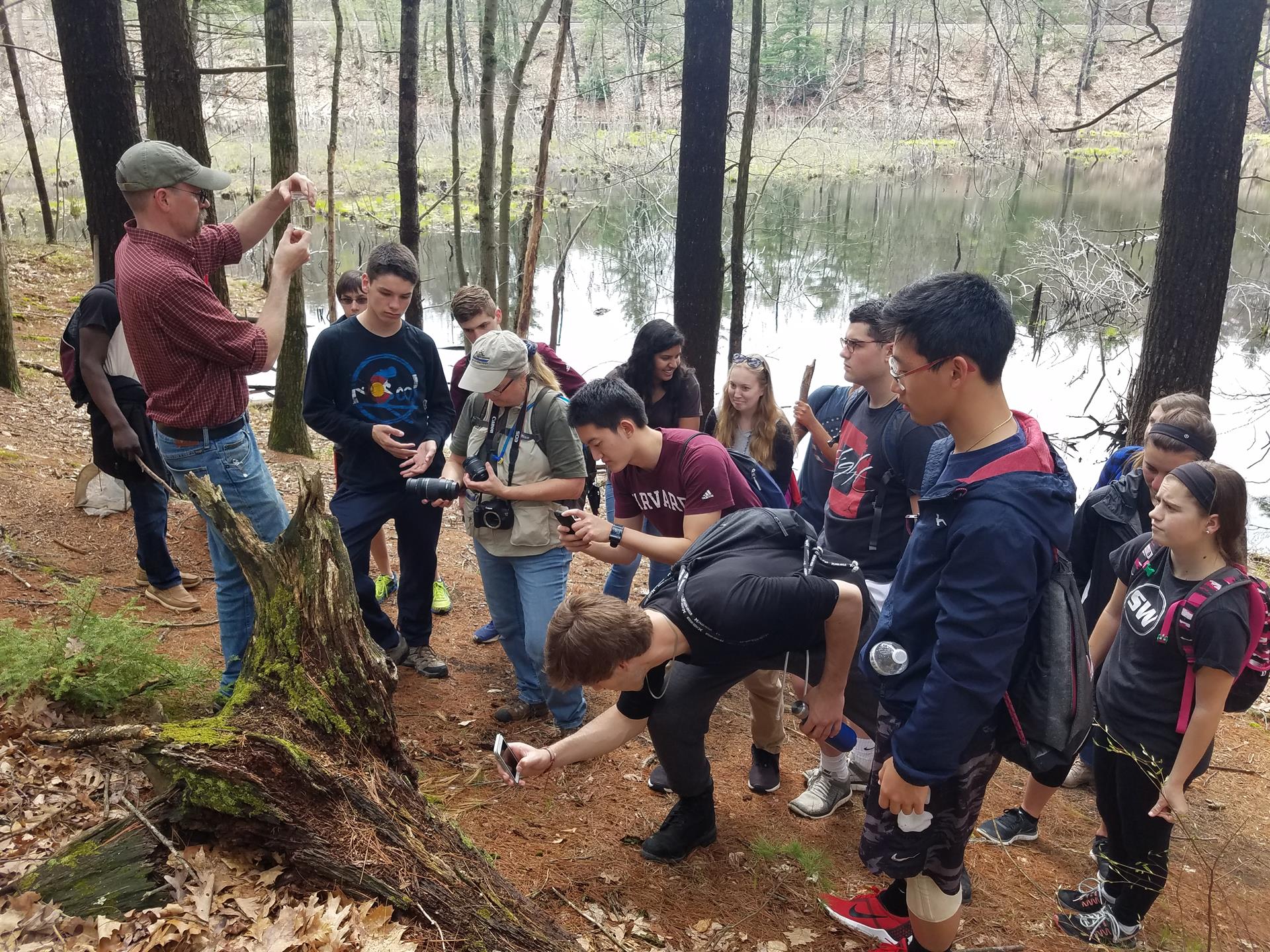
When the Fall 2018 group visit season comes to a close, we will have welcomed 713 students to Walden Woods since July 1 of this year! Recent years have seen a significant increase in our group visit program, for which we now engage face-to-face with about 1500 youth and 300-400 adults annually here in Walden Woods. During group visits, we ask participants to consider Thoreau’s ideas and writings, the natural landscape that inspired him, and the importance of that landscape to our past, present and future.
Groups that visit us include students of all ages from a wide range of learning environments, as well as adults from faith communities, libraries, and professional and volunteer organizations. We work with each group coordinator/teacher to ensure that the experience meets the educational goals of their specific group; no two visits are exactly alike. Activities that groups might experience when working with The Walden Woods Project include a guided walk on Thoreau’s Path on Brister’s Hill, any number of guided activities at Walden Pond (which may also include time with the Walden Pond State Reservation interpretive staff), a session in our Thoreau Library, a facilitated journaling activity, a silent walk, exploration of a vernal pool, or another specially-created activity.
In surveys of group visit coordinators since 2015, ONE HUNDRED PERCENT of respondents said they would recommend The Walden Woods Project group visit experience to colleagues looking to plan a group visit to Walden Woods.
Read what some coordinators have to say about this fall’s group visits:
- “The trip and time with you keeps coming up in discussion and in our work in really valuable ways. Thank you.”
- “The multidisciplinary approach you were able to provide (history, natural history/biology, conservation, literature, philosophy) [was the most valuable aspect of the visit].”
- “We had a great time on the trip! My students … really enjoyed the guided walk, and I was so grateful that you were able to accommodate our student in a wheelchair. Both classes said that they enjoyed the chance to get outside, and overall the day was a big success.”
- “All the kids were chatting away on the bus about how much they loved the trip (no, seriously!). Thank you, as always, for putting such thought and purpose into the tours!”
If you are a teacher or coordinator of a group that would be interested in a guided visit to Walden Woods, please contact our Director of Education, Whitney Retallic, at education@walden.org. Or, check out our group visit webpage at www.walden.org/education/group-visit/.
WALDEN WOODS PROJECT ACQUIRES KEY PARCEL OF LAND
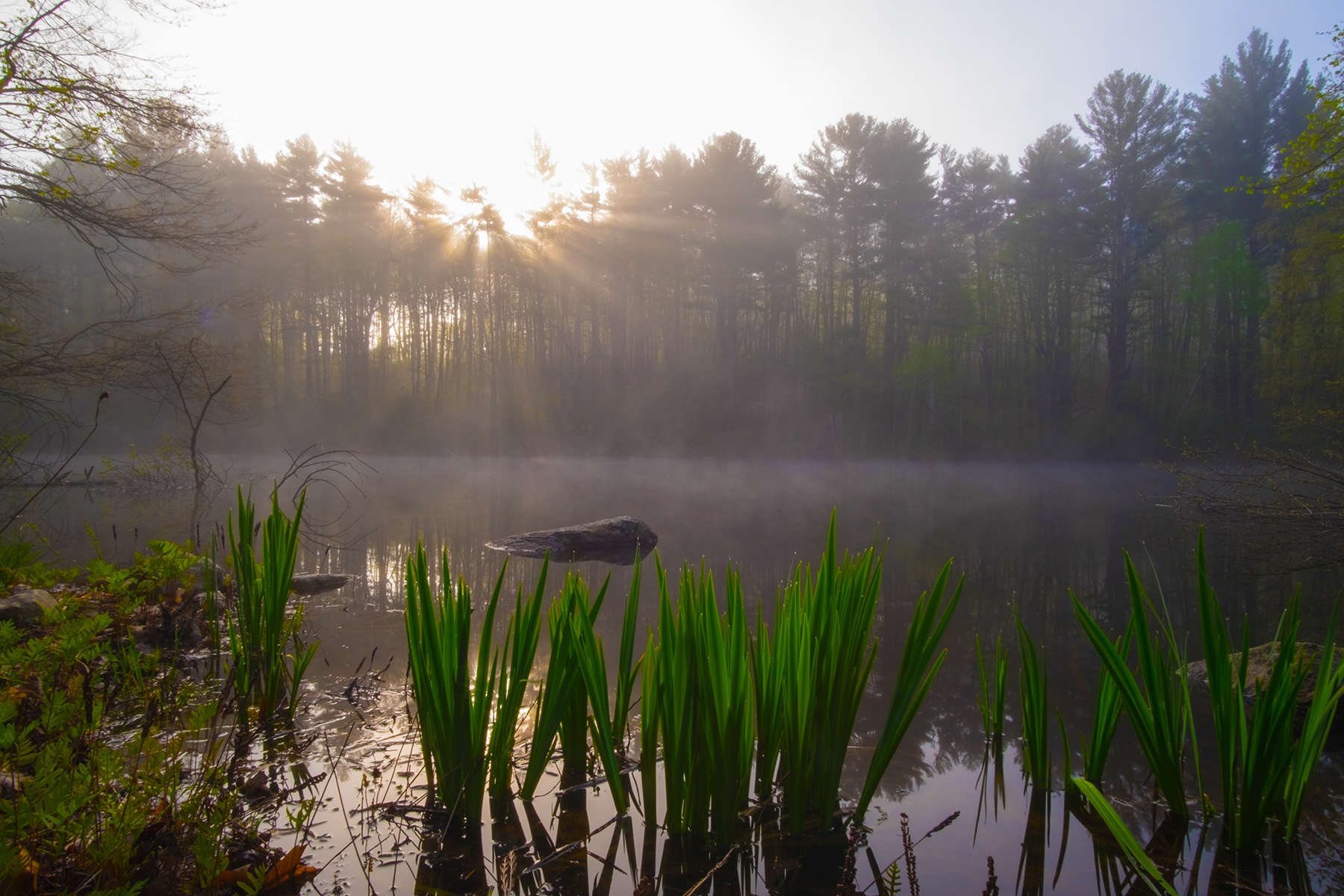
In August, The Walden Woods Project (WWP) acquired a key parcel of land adjacent to its headquarters in Lincoln, MA. Owned and devotedly stewarded for over 60 years by the family of Ramelle and Thomas Boylston Adams, the 10-acre parcel includes a pristine pond (pictured above) surrounded by woodlands, meadow, and the famed “beech spring” that Thoreau wrote about in his Journals. Thoreau particularly admired and described the nearby beech trees, which he noted had “almost disappeared… though once plenty. It is worth the while to go some miles only to see a single beech tree.”
We are deeply grateful to the members of the Adams family for offering the property to The Walden Woods Project at a favorable price. Ownership of this parcel will enable the WWP to use the property for two of our educational programs, the “Approaching Walden” professional development program and the “Education Program for School Groups.” “Approaching Walden” is a six-day professional development seminar for high school educators from across the United States. This place-based interdisciplinary workshop uses Thoreau’s writings and philosophy as a model. It supports teachers in developing standards-based curricula that engage students in a study of their home place and fosters an appreciation of the natural and historic features of their own communities.
Our “Education Program for School Groups” offers students the opportunity to learn about Thoreau’s legacy and time at Walden Pond, the birthplace of the American conservation movement. Thoreau’s environmental, human rights and social reform philosophies are incorporated into this program. Thoreau’s writings provide insights into some of the most urgent environmental and social reform issues of our time. His philosophy has never been more pertinent and is highly relevant to students living in urban, suburban, and rural communities at all economic levels.
The newly-acquired land offers an outstanding opportunity for both of these programs since it is, in many ways, a microcosm of all of Walden Woods. The pond located here is home to an extensive population of painted turtles, beaver, and other aquatic life and is visited by belted kingfishers, great blue herons, and migrating warblers, among many other species of wildlife.
The site directly abuts the headquarters of WWP; and is about half a mile from Walden Pond. Nearby trail systems offer opportunities for hikers, snowshoers, and especially those who want to pursue nature study or simply want to observe and enjoy nature at a particularly tranquil spot.
THE MORELIST VISITS WALDEN WOODS
We had the great pleasure of meeting Tara and John-Michael Elmore when they embarked on a year-long adventure that brought them to all 50 states in their van. What made it different from the average road-trip? They volunteered for a different nonprofit in each state! John-Michael’s love of Walden led them to The Walden Woods Project. They spent a day helping at our Farm while they were in Massachusetts. Here’s a first-hand account of their Walden experience:
HENRY by John-Michael Elmore
I was introduced to the writings of Henry David Thoreau in high school, when I was far too immature and distracted to comprehend the lessons and wisdom they contained. Fifteen years later, on an otherwise unremarkable day, I picked up Walden; or, Life in the Woods at my local library during my lunch break. Aware of its importance as a seminal piece of American literature, I thought it might be an interesting read.
Later that evening, curled up on my couch, wrapped in a blanket while ignoring the Midwest winter that angrily whispered just outside, I began reading what would become one of the greatest influences on my life. A book written over 150 years ago that was still, if not even more so, relevant today. A prescient treatise on living a meaningful life in an age of alienation known as modern civilization. Its pages were loaded with insights, lessons, and affirmations, eloquently written in Thoreau’s unmistakable poetic style. A new way of approaching human existence was beautifully laid out on the slightly browned and brittle pages of this old copy of an even older text. The seeds were sown for a new and rather unusual existence. My own metaphorical life in the woods.
In the ensuing years, Tara, and I have tried to walk across the United States, sold our house and nearly everything we owned, worked on a handful of small farms, lived in a yurt, in a tent, in the woods, and now in a van. We’ve practiced an ever increasing degree of minimalism, traveled, discovered, and most importantly learned; learned about ourselves, about others, about our country, about nature, and about life. But the first lesson came from Henry David Thoreau, passed on from the lessons he learned during the two years and two months he spent in the woods near Concord, Massachusetts. From his beloved Walden Woods and Walden Pond. It seemed obvious that we should try to pay homage to these hallowed grounds as we made our way through New England. At the very least, a visit was in order. But we hoped to do something more.

A few weeks before we expected to be in eastern Massachusetts, Tara sent an email to The Walden Woods Project, an organization committed to preserving the land, literature and legacy of Henry David Thoreau in order to foster an ethic of environmental stewardship and social responsibility. She briefly let them know that we were traveling across the country, volunteering in every state, and asked if there was something we could help with for a day. We were told they could use our help on the small organic farm that is part of the properties they protect. With small farming being something we’ve been deeply involved with over the last few years, and an opportunity to give back in some small way to the legacy of Thoreau, it seemed a slightly choreographed bit of serendipity was there for us to grasp.
So there we were, on a crisp fall day, harvesting seed corn, pulling weeds, and storing irrigation lines in anticipation of the coming winter. Working off the jolt of energy that was a result of having toured The Walden Woods Project Library and the treasures it houses. Surrounded by others who, also impacted by Thoreau, spend each day working on the lands and near the famous pond that he once traversed and called home; working to protect it and honor it.
As night fell, we found ourselves tucked in our van, our home, surrounded by the same woods that inspired Thoreau a century and a half ago, and continue to inspire others to this day. Years of living a more deliberate and purposeful life, of practicing minimalism and taking it to the extreme of living in 72 square feet, of learning about the land and the environment that surrounds us, of seeing the stars from every corner of our country, culminated in a peaceful evening. One in which the words in Walden took on not a new meaning, but an enhanced one.
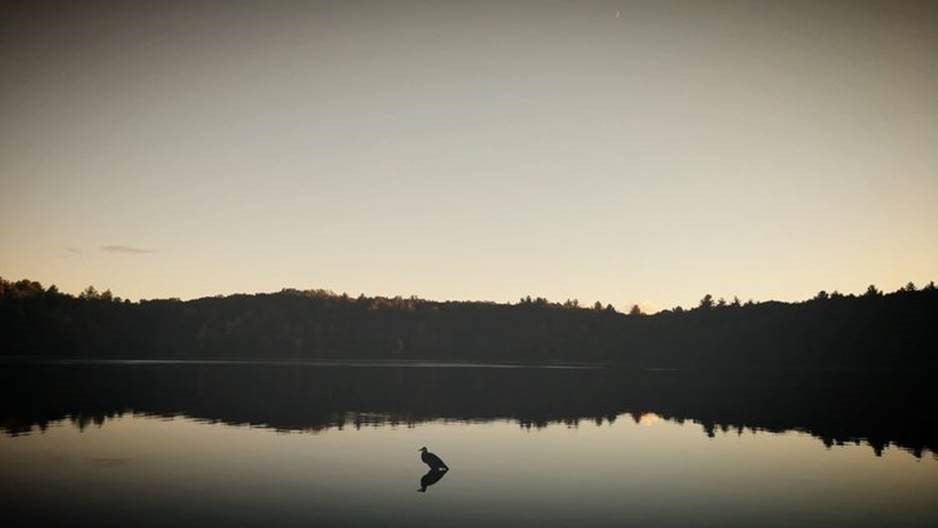
Evening on Walden Pond
It was a moment when I felt in my entire being that I was exactly where I was supposed to be; in time, in space, in mind, and in body.
Reflecting on his time spent in the woods, Thoreau wrote in the opening paragraph of Walden that, “at present I am sojourner in civilized life again.” Poignantly, he felt he was now a temporary resident in what is considered the normal life.
The next morning, I traveled up the road to Sleepy Hollow cemetery, and found the final resting place of Henry David Thoreau. In death, as in life, simplicity was paramount. His gravestone, surrounded by pens, pencils, and notes from admirers, is only marked with the name “Henry.” An emotional final reminder of the purity of existence he tried to pass on.
At present, I’m nearing the end of this adventure; the travels, the experiences, the volunteering, and the learning are all approaching their conclusion far too quickly. This particular experiment in living will soon be complete, but, at the risk of spoiling things with such platitudes, the lessons, friendships, and memories will be my companions as I move on to whatever awaits.
Meanwhile, I find myself preparing, however hesitantly, to be a sojourner in civilized life.
Read about their other stops – and more! – at themorelist.com.
POETS ON THOREAU
As part of the 2018 Concord Festival of Authors, The Walden Woods Project hosted a talk by David K. Leff, essayist and poet, and recent poet-in-residence for the New England National Scenic Trail (NET). David had called our Library asking if there has ever been an anthology of poems about Thoreau. There hasn’t been. So David has begun compiling one and spoke to an engaged audience about what he found.
“I think the biggest surprise,” he said, “was the number of poems, the range of authors in time and personal experience, and the devotion of many to Thoreau on an emotional level. Most of the writers feel a personal relationship with this man they’ve never met.”
From “Thoreau’s Flute” by Louisa May Alcott, one of the few poets who did know Thoreau personally, in which she called Thoreau
A potent presence, though unseen,―
Steadfast, sagacious, and serene…
to Ian Marshall’s twenty-first century Walden by Haiku and beyond, poets have put Thoreau’s life, philosophy, and inspiring words into poetry.
Of course not every poet found Thoreau inspiring and original. James Russell Lowell satirized him in his A Fables for Critics as treading
… in Emerson’s tracks with legs painfully short;
How he jumps, how he strains, and gets red in the face,
To keep step with the mystagogue’s natural pace! ….
Fie, for shame, brother bard; with good fruit of your own,
Can’t you let neighbor Emerson’s orchards alone?
Perhaps no individual beyond Shakespeare has generated so many literary responses, both positive and negative, by such a variety of authors. They range from rhymed metrical work to free verse, from sensual experiences of nature to philosophical musings. There are haiku and limericks, such as the one from Dennis Hannan which begins:
There was a young Thoreau named Henry
Who some think lived always in penury…
Some are in published books, newspapers and magazines. In the collections in our Library are typed and handwritten poems, personal outpourings which, had they not been collected here, might not otherwise have been read since the author put pen to paper.
One of the more famous pieces is by the Irish poet, William Butler Yeats, whose “The Lake Isle of Innisfree” begins:
I will arise and go now, and go to Innisfree,
And a small cabin build there, of clay and wattles made;
Nine bean-rows will I have there, a hive for the honey-bee,
And live alone in the bee-loud glade.
“An anthology of these poems,” Leff said, “would offer new insights into the meaning of Thoreau’s work and our aspirations for a better world.” As the Amherst poet, Robert Francis, wrote:
And Walden clearly was his Mediterranean
whose infinite colors were his picture gallery.
How far his little boat transported him―how far.
THE FARM AT WALDEN WOODS CONCLUDES ITS ELEVENTH SEASON
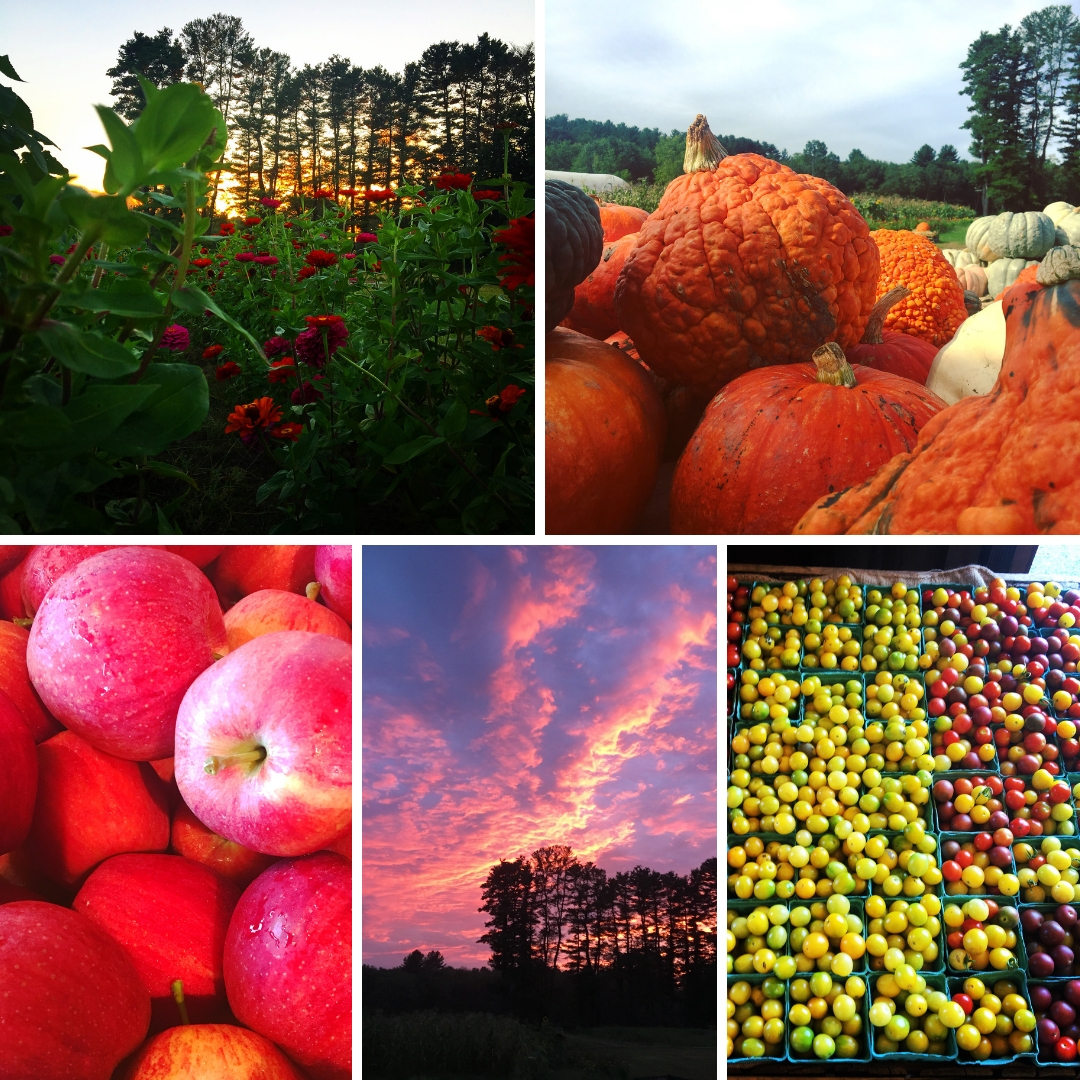
Farming is humbling work— it requires a delicate balance of forces completely out of one’s control. Too much heat, too much rain, or too much wildlife can create an endless array of challenges and Concord farmers got a healthy dose of those challenges this season. A delayed Spring pushed our growing season back, too much heat and rain amounted to a poor tomato crop, and nonstop rain in October kept most of us indoors. This was the wettest fall in the Boston area on record.
With each new set of challenges comes new learning. This difficult season has better prepared us for next year —fingers crossed nature will work in our favor! We look forward to seeing you all again next season.
ABOUT US…
The Walden Woods Project is a nonprofit organization committed to preserving the land, literature, and legacy of Henry David Thoreau through conservation, education, research and advocacy. Founded by recording artist Don Henley, the Project uses the land it has protected in Walden Woods to foster an ethic of environmental stewardship and social responsibility, both cornerstones of Thoreau’s philosophy. We are located in the heart of Walden Woods:
The Walden Woods Project
44 Baker Farm
Lincoln, MA 01773
We invite you to contact us at (781) 259-4700 or send us an e-mail using our Contact form.
Please consider supporting our mission. Thank you.
The Walden Woods Project

